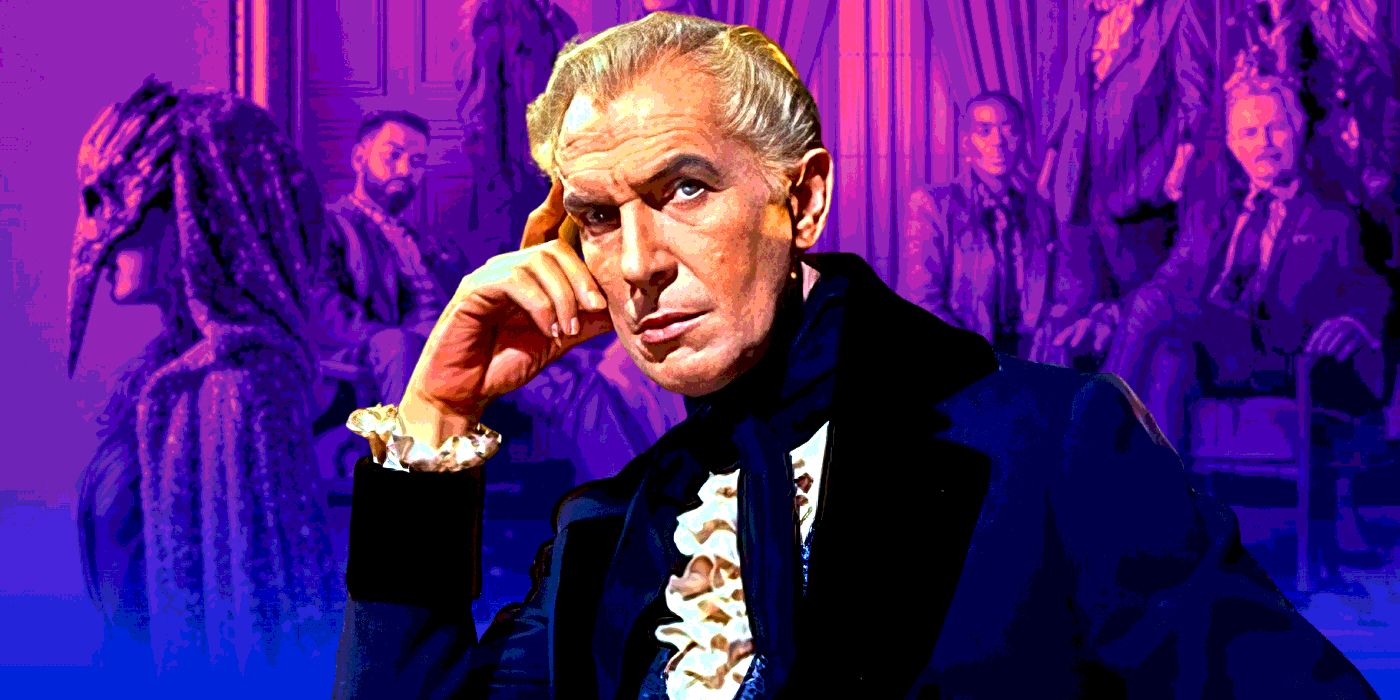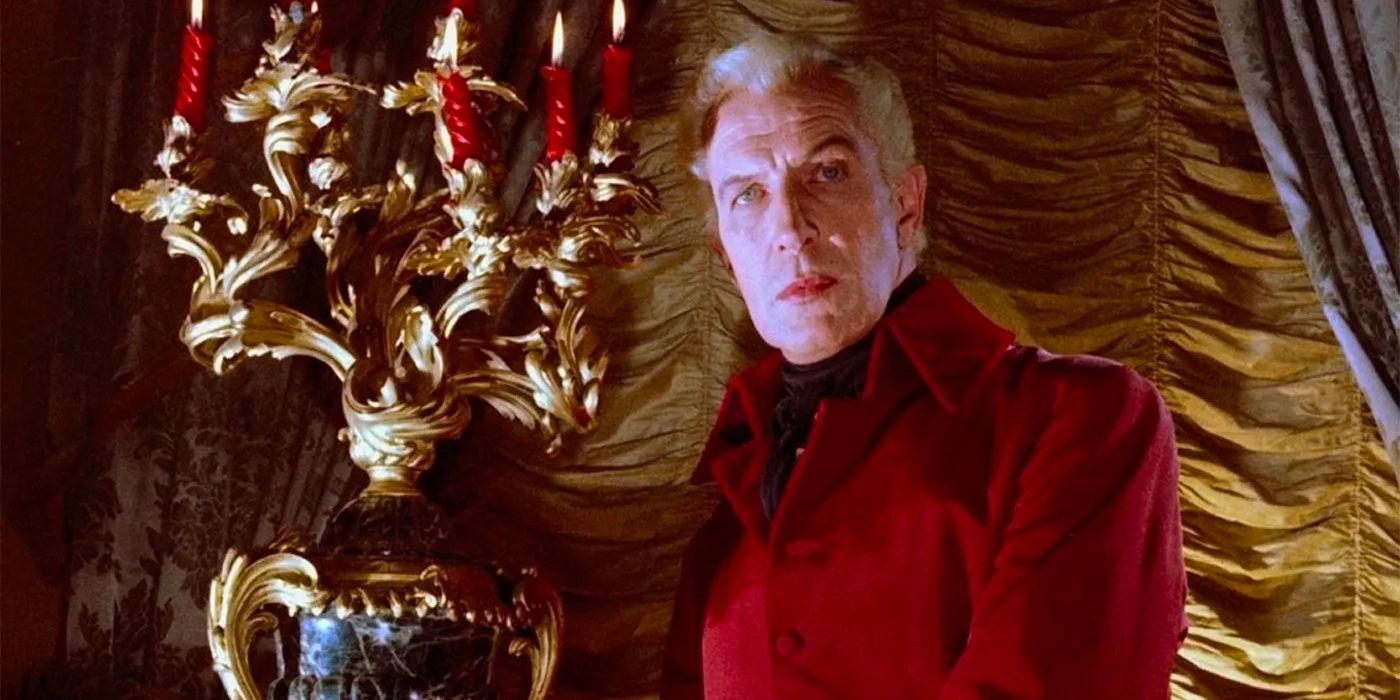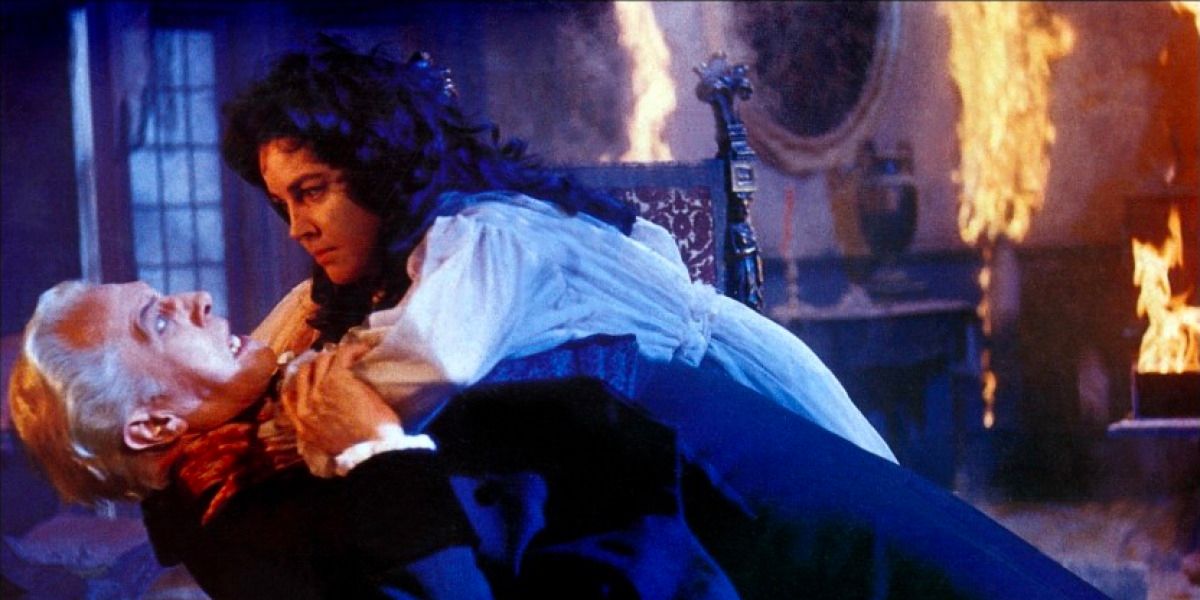The Big Picture
- The Fall of the House of Usher series on Netflix is a loose adaptation of Edgar Allan Poe’s short story, focusing on a dysfunctional and morally bankrupt family.
- Viewers can expect a spooky series filled with murder and mayhem inspired by Poe’s tales, including allusions to “The Masque of the Red Death” and “The Black Cat.”
- The 1960 film adaptation House of Usher in Roger Corman’s Poe Cycle, starring Vincent Price, stands out for its tone, production design, and Price’s sympathetic and haunting performance as Roderick Usher.
After being in development for a couple of years, Mike Flanagan‘s new series The Fall of the House of Usher is finally coming to Netflix. From what we’ve learned so far, it seems to be an adaptation of the short story in name only, as the series seems to be going for more of a Succession meets gothic melodrama route. The Ushers are now a cavalcade of rich, powerful, dysfunctional and morally bankrupt dilettantes who are going to receive a reckoning straight off the pages of one Edgar Allan Poe. Since the 19th-century writer, poet, and stringer of macabre tales aplenty is a general inspiration, viewers should look forward to a Halloween season full of murder and mayhem. In the first trailer alone we see allusions to classic stories such as The Masque of the Red Death, The Black Cat, and you can’t have Poe without a raven or two thrown into the mix. Poe fans like me are rejoicing to see two very mainstream appearances within a year of each other, of course, but it’s clear as far as the titular story goes it seems to be only a small piece of Flanagan’s new project.
What Is the Original “The Fall of the House of Usher” About?
From what we’ve seen of the show so far it’s clear that The Fall Of The House of Usher more pertains to the decline of a large and wealthy family, as seemingly each member is going to get plucked out one by one in their own unique and inspired ways. But what is the story they pulled the title from? “The Fall of the House of Usher” was written by Poe in 1839 for Burton’s Gentleman’s Magazine. Instead of a large and thriving (for now) family, it instead follows the last two descendants of the Usher name in their crumbling manor, and an old friend who comes to visit, the reader’s perspective.
Roderick and Madeline Usher are twins, both as strange and codependent as each other, as Roderick’s twin sister becomes more of a shadow of herself, he is filled with trepidation and shuts himself in further and further, and as a result the house itself tears apart. At its core, it’s a story about how grief, and the fear of losing a loved one, can cause insurmountable destruction to the human spirit, a subject Poe was tragically familiar with all his life. Of course, the story isn’t without the element of horror Poe is so famous for, despite the lack of any blatant supernatural interventions, the tropes are there in spirit. Including, most famously, Madeline Usher rising from her apparent death and killing her brother of fright as the house sinks into the abyss.
Roger Corman Gave Us Eight Great Poe Adaptations
Despite not being as incredibly well-known as say, The Raven or The Tell-Tale Heart, The Fall of the House Of Usher is not without its numerous adaptations and references. Claude Debussy was working on an opera based on the tale before his death in 1918, before Philip Glass actually went ahead and did it, and fans of theater composer Dave Malloy heard references to it in his song cycle Ghost Quartet. It’s also made appearances on film multiple times, including two silent versions in 1928, New-Queer Cinema forerunner Curtis Harrington making two short film adaptations wherein he played both Roderick and Madeleine himself, and it was modernized quite recently in 2020 with the incredibly underrated The Bloodhound. However, one version stands head-and-shoulders above the rest, and it can be found in Roger Corman‘s Poe Cycle.
Roger Corman is one of the most prolific minds in cinema, directing, producing, and even acting in quite literally hundreds of films. From 1960 to 1964, Corman created The Poe Cycle, using the writer’s place in the public domain to his full advantage by making eight adaptations of his poems and short stories, and it all began with House of Usher. Released in 1960, House of Usher is a fairly accurate version of the story, starring Mark Damon as our protagonist, here named Philip, Myrna Fahey as Madeline, and the Prince of Horror himself Vincent Price as Roderick. Price actually stars in all but one of these films, but House of Usher was his best, according to both me and The United States National Film Registry as of 2005.
The reasons why this is a fantastic adaptation of the story are the same reasons the Poe Cycle is great in general, but the first film absolutely perfected both: The tone, and Price’s performance. While it does fall into some Hollywood traps, like shoving in a romance that didn’t exist in the book, this is a classic of gothic horror cinema. The production design was incredibly ambitious and was the first American International Pictures film to be produced in color, and they took full advantage. Despite the dreary nature of the story, House of Usher is dripping in rich and expressive technicolor, which makes the film seem painted onto the screen in a way that’s both classic and chaotic, the high melodrama of it all, the opulence and style, fits the emotional turmoil of Poe’s stories perfectly.
Vincent Price Brought the Best of His Career for ‘House Of Usher’
The greatness of not only House of Usher but the entire Poe Cycle comes down to Price himself. He played some of Poe’s most famous characters and narrators, but Roderick Usher was his absolute best performance. Not to say the rest of the cast wasn’t great too, Fahey goes absolutely insane as Madeline, and it was an unusual sight to see an ingénue push the envelope like that and truly look terrifying, but Price took it to another level.
Firstly, Price bleached his hair for the role, that’s commitment. Secondly, despite Roderick getting a bit of an antagonist makeover, Price performed the role with a lot of sympathy for his character. You feel terrible for him when watching this film, haunted by his tainted ancestry, just wanting the nightmare to end for not only him but his sister whom he’s incredibly protective over. A part of the book that was expanded in Price’s performance is that Roderick has pretty severe sensory issues, being incredibly sensitive to harsh sounds and touches. He looks so fragile and afraid when he recoils from it, that when you see him being shaken or yelled at by someone you just want to make it stop, especially those who also have sensory issues. Despite the film being set up as very Hollywood, very Hays Code, with characters seen as abnormal being disallowed from any kind of relief or redemption, you can see the story for what it is: A tragedy.
Because at the end of the day, this story, as all of Edgar Allan Poe’s stories, is a tragedy. Not just a tragedy the characters are experiencing, though you do feel empathy for the circumstances that have been forced on them, but the tragedy of Poe himself. The reason he could so easily tap into the feelings of fear and grief that the Usher family experiences is because he had felt the pain of grief and fear of death multiple times, losing parents, siblings, and partners to debilitating illness. In understanding that this is a horror that comes from sadness and grief, you can come to understand these stories and adapt them well. House of Usher, especially through Price’s performance, doesn’t feel like you’re just gawking at weirdos, but two sensitive and enigmatic people being crushed under the weight of their family’s dark legacy.






